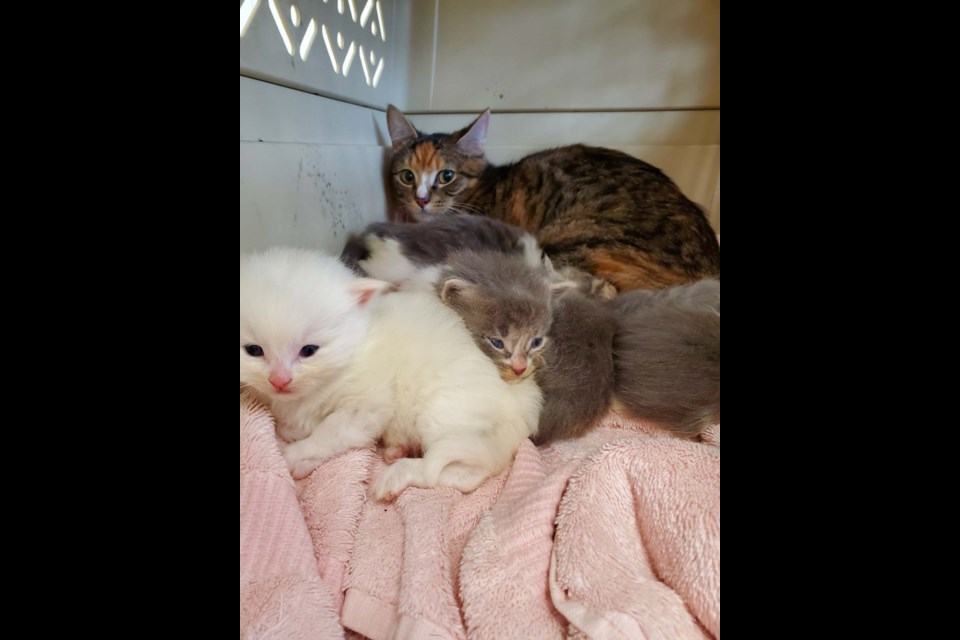Up to 47 cats, including 20 kittens and three pregnant females, have been rescued from a house in Richmond.
The Richmond-based Regional Animal Protection Society (RAPS) yesterday and today rescued the cats from an apparent hoarding situation where a “well-intentioned individual” was feeding stray cats.
However, according to RAPS, the numbers grew to unmanageable levels.
Indeed, such was the gravity of the situation, the number of cats being found continues to fluctuate as more are identified and humanely trapped at the site.
“We were alerted to the situation by a family member and the individual in the home agreed that, in the best interests of the animals, they would be surrendered to RAPS,” said Eyal Lichtmann, CEO and executive director of RAPS.
“It seems a good Samaritan was feeding a colony of cats, and that the colony continued to grow to an unmanageable number.”
RAPS began 25 years ago with a small group of dedicated volunteers trapping and spaying or neutering feral cats.
As a result, Richmond has effectively no feral cats while, by comparison, Surrey is estimated to have tens of thousands.
All the animals will have a preliminary examination by a RAPS Animal Hospital veterinarian.
They apparently have a variety of health issues that will need to be addressed.
Some of the kittens have eye infections that are being treated. Most of the cats and kittens were flea-infested.
Three of them appear to be pregnant, so RAPS is anticipating an average of five kittens each, which would increase the numbers in the rescued group to more than 60.
Most of the cats and kittens, at the appropriate age, will be vaccinated and spayed or neutered.
Many, said RAPS, will require a variety of medical procedures such as X-rays, full diagnostic lab tests, screening procedures, SNAP tests to determine conditions such as feline immunodeficiency virus (FIV) and leukemia, as well as any other symptoms that might be in evidence. Some adult cats will likely require dental or other procedures.
Eight, three-day-old kittens and their mom have been placed in a secure foster home. Twelve other kittens, estimated to be around four to six weeks old, will likely also be fostered until they are eight to 10 weeks old and ready for their forever homes.
After their health is assured, the cats will be settled into the RAPS Animal Shelter and/or in foster homes, as appropriate. Adoptions will be considered on an individual basis as the cats and kittens are assessed. The cats that are not adopted will transition to the RAPS Cat Sanctuary, Canada’s largest, where there are already more than 400 cats.
“These cats and kittens will receive the individualized care and attention that RAPS staff and volunteers deliver to all our animals,” added Lichtmann.
“This is possible because of the community of supporters that make possible everything we do. This does come at a moment of great challenge, however, as our resources are stretched due to social distancing. At this point, barring any extraordinary health issues, we anticipate that the medical care for the cats, including housing and feeding them and seeing them through this transition will probably average $1,000 per animal. So we are setting up a special fund to ask the public for help in ensuring these animals transition well and eventually find their forever homes.”
Donations are being welcomed at rapsbc.com/donations.



